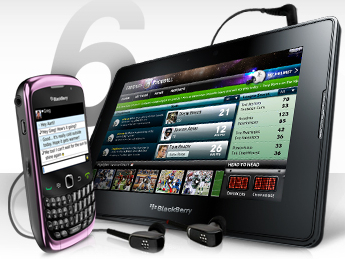What we need to hear coming out of BlackBerry World


Phone stuff
The BlackBerry is still big in the enterprise, but has been losing market share for a while. The practice of releasing many variants of just a few phone models may have worked in the past but it's clear that is no longer good enough for the market. RIM has also put the BlackBerry OS into a lame-duck posture, with the stated intention of moving the phones onto the QNX platform that powers the PlayBook tablet. This has put those who follow such things into a "wait and see" attitude concerning the BlackBerry, given the current OS will be going away.
We had better hear a concise plan from RIM concerning the conversion of the BlackBerry to the new QNX platform. This plan must have a detailed timeframe for the appearance of phones with QNX, and it better not be too far in the future. One of the worst things a company can do to its own primary product line is give it an 'end of life' death knell, without a definite way forward that will happen 'real soon now'. We need to hear that the first QNX phone will come this year, and details about what it will be and how it will carry the BlackBerry line forward.
And please, it can't be yet another Curve or Bold. It's time to innovate, not skate by on more of the same.
Tablet stuff
The PlayBook has been largely panned in the tech press, primarily given its lack of native messaging ability that made the BlackBerry name famous. RIM stated at the PlayBook launch that email, calendaring and contact apps would be coming to the tablet 'real soon now', and we must hear an exact date for the release of this capability.
I have been testing the PlayBook and it has impressed me more the longer I use it, but having to resort to web-based messaging is not good enough. RIM must acknowledge that this is a failure, and give details for when it will be rectified. I suspect the delay indicates that producing such apps is a bigger technical feat than it seems on the surface. The vaunted BlackBerry messaging security is based on having a single device tied to the user, and the PlayBook changes things significantly. RIM must make sure these apps can handle multiple devices per user without compromising the security that BlackBerry brings to the table.
If that is the case then RIM would do itself a world of good by admitting that. Give us the facts, and then accurately define the way forward. The tech world does not always give a second chance, and we need to hear in BlackBerry World why we should.
While the press has hammered the PlayBook for the need to tether it to a BlackBerry phone to do native email, there are benefits to be obtained by other synergy between a tablet and phone. With the QNX-based phones coming, let's hear about some cool interaction between them and the PlayBook. Make them talk to each other to give us additional features, and tell us what those will be. It's your chance to take the spotlight back and show us that you are innovative, and not just reactive.
What we don't want to hear
While we need to hear these things, what we don't need to hear is more bizarre ramblings by the co-CEOs that leave us wandering if the company has a clue. This has happened more than once recently, and it simply puts out the message that RIM is struggling without a clue. Don't do that.